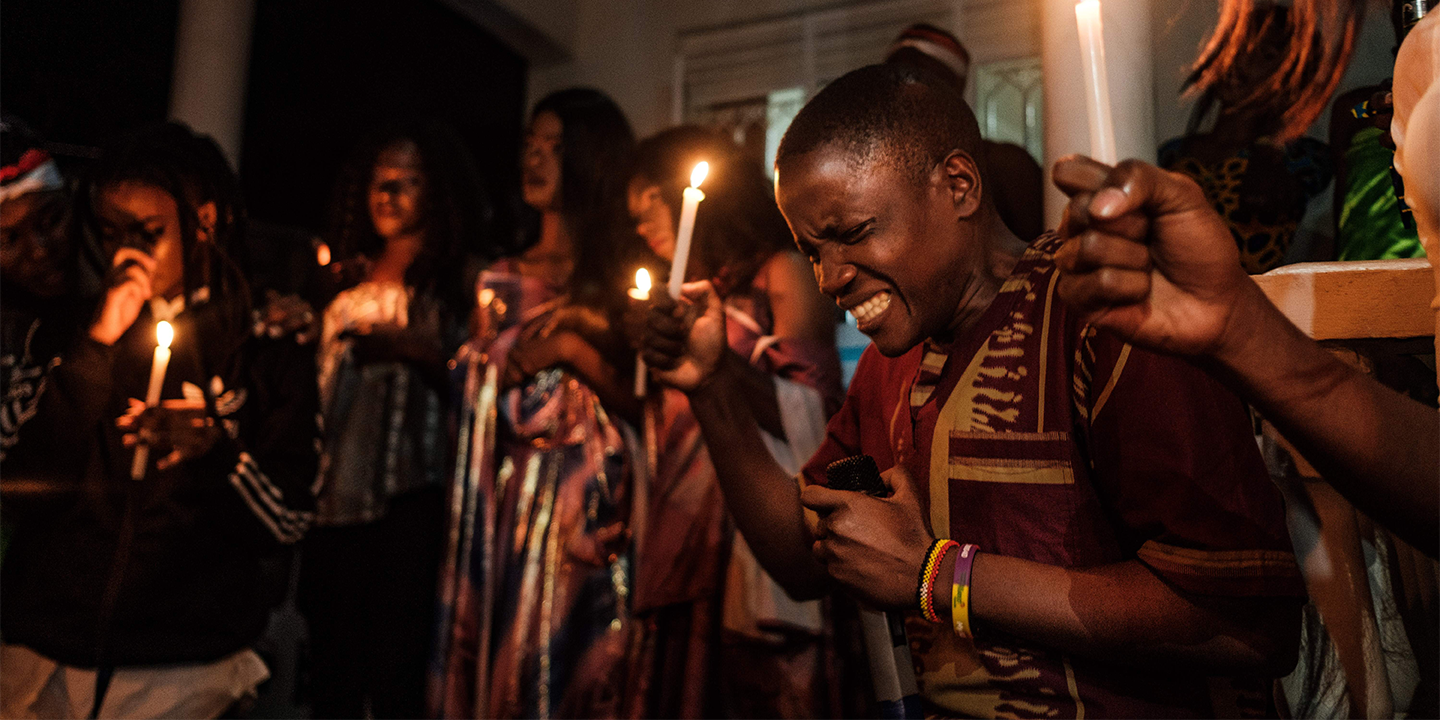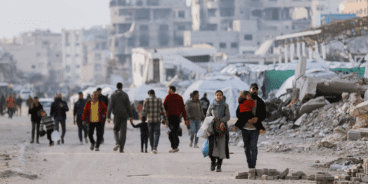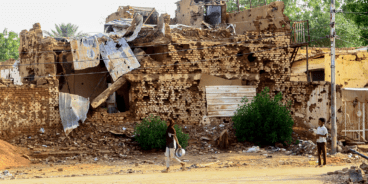

Atrocity Alert No. 341: Burkina Faso and Mali, El Salvador and Uganda
Atrocity Alert is a weekly publication by the Global Centre for the Responsibility to Protect highlighting situations where populations are at risk of, or are enduring, mass atrocity crimes.
JOURNALISTS ACROSS BURKINA FASO AND MALI FACING INCREASING RISKS
In a report released on 3 April, Reporters without Borders warned that the Sahel region is at risk of becoming “Africa’s biggest news and information black hole,” as local journalists and international media are caught between increasing attacks by armed actors, as well as hostile political environments. The report examined press freedom in northern Benin, Burkina Faso, Chad, Mali, Mauritania and Niger from 2013 to 2023.
The report noted that journalists in the Central Sahel – Burkina Faso, Mali and Niger – face threats and the risk of kidnapping or assassination on a daily basis, as armed Islamist groups “do not hesitate to kill reporters or kidnap them and use them as bargaining chips.” Groups allied to the so-called Islamic State and al-Qaeda are primarily responsible. Olivier Dubois, a French journalist who was abducted in Gao, Mali in April 2021 by an al-Qaeda linked armed group, was released on 20 March. These groups have also targeted community radio stations because the content did not adhere to their cause and have destroyed telecommunications infrastructure in attempts to isolate and control villages. According to the report, isolating communities prevents them from reporting the presence of armed groups and complicates the work of journalists.
Meanwhile, journalists are also facing obstacles imposed by governments, particularly the transitional authorities in Mali and Burkina Faso, who have created an increasingly hostile environment and taken steps to weaken independent media, as well as restrict freedom of expression since their respective coups. Authorities in both countries have surveilled, threatened and arbitrarily detained real or perceived government critics and have cracked down on foreign media, including suspending media outlets and expelling foreign journalists. These measures, coupled with a climate of fear, have made their work nearly impossible. Most recently, on 1 April, Burkinabé authorities expelled two French journalists without giving a reason.
On 31 March the UN Independent Expert on the situation of human rights in Mali expressed his grave concern regarding the shrinking of civic and media space, warning the Human Rights Council that Malian authorities are seeking to “asphyxiate” or “sabotage” civil society, which has “almost entirely disappeared, with no freedom of the press or of self-expression.” The Independent Expert documented growing levels of self-censorship and reported attacks against the media and human rights defenders which have “fostered an environment conducive to impunity.” For example, Malian authorities suspended Radio France Internationale and France 24 after both outlets reported on sensitive stories involving abuses by security forces.
Authorities across the region should uphold the freedom of the press and allow journalists to work freely. In Burkina Faso and Mali, the transitional authorities must promote public dialogue, restore media freedoms and remove unlawful restrictions on free expression.
HUMAN RIGHTS CRISIS DEEPENS ONE YEAR INTO EL SALVADOR’S STATE OF EMERGENCY
Last Monday, 27 March, marked one year since the government of El Salvador imposed a nationwide state of emergency in an alleged attempt to curb gang-related insecurity. The state of emergency has triggered systematic human rights violations and abuses over the past 12 months, as President Nayib Bukele has overseen at least 66,000 detentions that are often accompanied by torture and ill-treatment, short-term enforced disappearances and the widespread violation of due process rights. More than 7,900 complaints of human rights violations against prisoners have been received by the country’s national human rights institution in the past year. The non-governmental organization Cristosal has verified 132 deaths in state custody, although actual figures are likely much higher. On 28 March the Office of the UN High Commissioner for Human Rights expressed serious concerns about severe prison overcrowding, including lack of access to sanitation, water, food and urgent medical care, and other serious violations of prisoners’ rights.
Many of the arrests are presumed to be arbitrary as security forces deliberately target marginalized and low-income neighborhoods without any evidence of gang involvement. Meanwhile, on 24 February President Bukele celebrated the transfer of 2,000 prisoners to the “Center for the Confinement of Terrorism,” a new mega-prison which, according to Bukele, “will be their new house, where they will live for decades, mixed up, unable to do any more harm to the population.”
The Legislative Assembly initially imposed a 30-day state of emergency in response to alleged gang violence that killed at least 62 people on 26 March 2022. It has since been regularly renewed alongside the suspension of a range of procedural safeguards. Amnesty International has documented “the holding of expedited hearings – mostly virtual – where a judge, whose identity is withheld, can simultaneously try up to 500 people with virtually no evidence implicating them in the commission of an offence.” According to Amnesty, the country’s executive, legislative and judiciary are “exercising a key function within the state machinery,” committing violations that “are systematic in nature due to the widespread and sustained manner in which they are occurring.”
Rather than addressing the root causes of insecurity and gang violence in El Salvador, President Bukele’s tenure has been marked by deliberate assaults on democratic safeguards that have facilitated an environment conducive to systematic abuses by state agents. Elisabeth Pramendorfer, Latin America expert at the Global Centre for the Responsibility to Protect, said, “The flagrant disregard for human rights obligations and rampant impunity for violations are elevating the risk of atrocities in El Salvador. UN member states must exert political and economic pressure on the Bukele administration to revert its descent into authoritarianism and halt the commission of possible crimes under international law.”
UN EXPERTS CONDEMN “EGREGIOUS” ANTI-LGBTQ+ LEGISLATION IN UGANDA
On Tuesday, 21 March, the Ugandan Parliament passed a controversial anti-LGBTQ* bill, which would make some homosexual acts punishable by death. The 2023 Anti-Homosexuality Bill, approved by 387 of the 389 lawmakers, confirms the existing punishment of life imprisonment for same-sex conduct, increases the prison sentence for attempted same-sex conduct to 10 years and calls for the death penalty for “aggravated homosexuality,” which includes “serial offenders” or anyone having same-sex relations with a person with a disability. Additionally, individuals advocating for LGBTQ+ rights, or providing financial support to LGBTQ+ organizations, could face up to 20 years imprisonment. President Yoweri Museveni has 30 days to veto the bill or sign it into law. UN High Commissioner for Human Rights, Volker Türk, called on President Museveni to reject the “draconian new legislation,” saying that if signed into law “it will render lesbian, gay and bisexual people in Uganda criminals simply for existing, for being who they are.”
A group of UN Special Rapporteurs also issued a statement condemning the “egregious anti-LGBT legislation,” asserting that “the imposition of the death penalty based on such legislation is per se an arbitrary killing and a breach of article 6 of the International Covenant on Civil and Political Rights.” The UN Special Rapporteurs added, “consistent acts of aggression, intimidation, and harassment and the proposed legislation threatened the physical and mental integrity and health of lesbian, gay, bisexual, trans and other gender diverse persons in Uganda.” During February alone, the advocacy group Sexual Minorities in Uganda received reports from more than 110 LGBTQ+ people of incidents of arrests, sexual violence, evictions and public undressing.
Violence, discrimination and persecution based on sexual orientation and gender identity may amount to atrocity crimes, particularly when widespread or systematic, and can serve as a critical warning sign of potential atrocities or identity-based repression and conflict. A report published last year by the UK-based organization Protection Approaches asserted that in many countries the “persecution of LGBTQI+ people has consistently been followed by oppressive politics and violence” and that anti-LGBTQI+ laws and policies are often accompanied by “political and popular hate speech, undermining of freedom of speech and independent media, extensive usage of executive and emergency powers and attacks on the independent judiciary,” among other restrictions.
All states should safeguard the human rights of LGBTQIA+ people in accordance with International Human Rights Law, including the Universal Declaration of Human Rights, international human rights treaties and customary international law. President Museveni should reject the bill and urge the Parliament to introduce comprehensive non-discrimination legislation that promotes and protects the human rights of LGBTQIA+ people and other minorities. States should also develop, adopt and implement an inclusive, intersectional national atrocity prevention strategy.
*While quotes in this piece reflect the acronym utilized by organizations or individual speakers, analysis by the Global Centre utilizes the LGBTQIA+ acronym to reflect Lesbian, Gay, Binary, Transgender, Queer, Intersex, Asexual and other people.
Related Content


Atrocity Alert No. 433: Israel and the Occupied Palestinian Territory, Myanmar (Burma) and Mali
